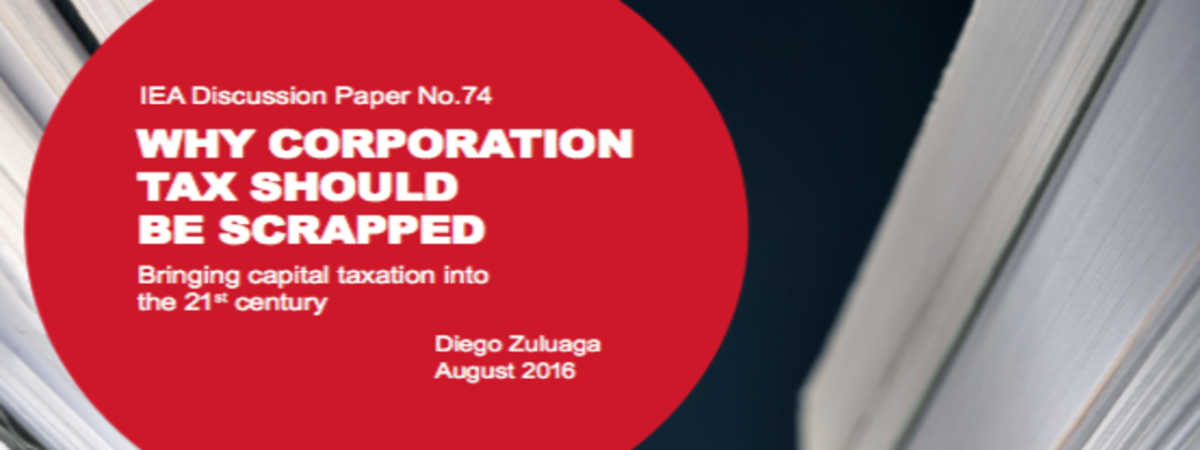Apple and Ireland: nothing surprising in the EU imposing taxes
SUGGESTED



Whether opposed to or in favour of the Commission’s action, people on either side of the debate seem surprised that they have done it. “Tax is not an EU competence”, they are writing, pointing out that tax is supposedly left to national governments and the EU does not technically have any powers in this area.
Well, as anyone who has read my monograph would know, having no formal powers doesn’t often stop the EU’s Commission from forcing through the changes that it wants. What Apple has seen this week is precisely the sort of thing that I was writing about ten years ago.
So how does the Commission act in an area where it supposedly has no powers? The answer is that it uses other powers, which it extends and applies until they turn into the levers that it wants.
In the Apple case the Commission used the State Aid rules. These were initially one of the positive things about the European Union, designed to stop the failed idea of politicians “backing winners”, which usually meant taxing successful businesses to fund handouts to politically well-connected failing ones. But the State Aid rules were extended to tax, treating tax breaks as an illegal disguised subsidy.
There is nothing new about this; it mostly started fifteen years ago, in 2001, and again the Irish were the main target. Ireland in the early 1990s had a high general corporation tax rate of 40%, but it introduced a special low 10% rate for finance companies in its Dublin-based International Financial Services Centre (IFSC). The Commission ruled that this was effectively an improper subsidy to the finance industry under the State Aid rules, and ordered its abolition.
That was really the root cause of the EU’s current row with Ireland, because the Irish response to the IFSC being declared illegal was to reduce all its corporation tax to 12.5%. Because that wasn’t targeted at a particular company or industry sector, it wasn’t illegal State Aid and so the EU Commission could do nothing to stop them, much as it wanted to.
So the EU Commission’s current action against Ireland over Apple is largely “Round Two”, a repeat of what it did fifteen years ago.
However the EU’s position now is weaker than it was then; the IFSC was a clear advantage to the finance industry that was not available to other businesses or to those outside Dublin, so was more obviously State Aid. In contrast Apple was merely taking advantage of a structure that was available to any business (although with more difficulty for smaller companies or those that are not multinationals); it is therefore much harder for the Commission to argue that it is a disguised subsidy to a particular business or sector, which it needs to do to attack it using the State Aid rules. Ireland’s promised appeal to the European Court of Justice might well succeed.
But State Aid is not the only lever that the EU Commission has to change national governments’ tax policies, nor is it the only one that it has used in the past. Others include:
- The Code of Conduct on Business Tax, which operates in a similar manner to the State Aid rules in that it allows low general tax rates but stops specifically targeted lower rates. Its scope is wider than the State Aid rules, both in catching more tax breaks and also geographically, as it includes various jurisdictions that are not in the EU but are connected to EU members. For example Jersey was forced to change its tax system under the Code of Conduct; like Ireland’s IFSC, Jersey previously had a split rate system, with 20% tax rate for companies trading on Jersey but a 0% rate for the “offshore” industry; like Ireland they responded by reducing their main corporation tax rate, in Jersey’s case to 0%.
- The Savings Directive, which was designed to impose tax on all interest payments to EU residents, including interest paid by banks in various non-EU countries such as Switzerland and Liechtenstein, the Channel Islands, and even the Caribbean. Its main effect was to move offshore bank accounts from Switzerland to Hong Kong, out of the reach of the Directive.
- VAT is an EU tax; all members must impose VAT of at least 15%, and must follow the detailed system laid down by various EU Directives. The lower rates, such as the UK’s 0% rate on food and children’s clothes, are only allowed if the EU gives permission, which it very rarely does for new areas. This was the cause of the “tampon tax” problems when the EU would not allow George Osborne to abolish VAT on women’s sanitary products.
- National tax rules are not allowed to conflict with the “Fundamental Freedoms” of the EU (the freedom of movement of people, capital, goods and services) or other fundamental provisions (such as non-discrimination against other EU nationals). These have struck down various provisions of national tax law, including some UK anti-avoidance rules.
- Import duties are harmonised by the EU; national governments have no control over the import duties they charge, irrespective of whether the goods are coming from other EU countries or from outside the EU.
- Excise duties, for example on alcoholic drinks, tobacco or petrol, are not set by the EU, but the EU rules still have a great impact on national governments’ ability to levy and collect excise duties. For example the “booze cruise” (technically the “personal import regime”), the ability to travel to another EU country and bring back unlimited quantities of alcoholic drinks or tobacco without having to pay your home country’s excise duties or VAT, is a direct result of EU rules (and one of the rare benefits of EU membership).
- The Parent-Subsidiary Directive and the Interest & Royalties Directive prevent EU member countries from levying withholding taxes on payments from a company in one EU country to an associated company in another EU country. This has been a great help to multinationals engaged in tax planning, for example Starbucks reduced its UK tax bill by paying royalties to another group company in the Netherlands, royalties which the EU’s Interest & Royalties Directive prevents the UK government from taxing.
The EU Commission’s ruling on Apple may be legally dubious (it is not clear that the arrangements actually constitute State Aid, as they appear to have been available to any other company that chose to adopt a similar structure).
But the fact that the EU Commission is overturning national governments’ democratically mandated tax systems should not surprise us. Even though tax is not an “EU competence” and is supposed to be the preserve of national governments, the EU has numerous levers that allow it to over-ride that national sovereignty. As I have been saying for a decade or more.




